Synthetic Biology FSP


 |
Welcome to the second Synthetic Biology (SynBio) Future Science Platform (FSP) newsletter of 2021.
As we go into our final year, we are seeing five years of hard work pay off. We had great reviews by our International Advisory Panel (see article below) and from our recent stakeholder survey. Overall, it appears that our community is very happy with the CSIRO SynBio FSP program with 84 per cent of participants agreeing that that investment in the FSP has delivered value. Many useful comments were also included in responses.
The strong positive reviews we’ve received are a testament to everyone involved in our program, and we’d like all our partners and stakeholders for their continued commitment and support.
There is also strong momentum in the media on synthetic biology applications and their potential. Check out some of the great coverage we've recently received in Cosmos (republished with permission), Forbes and CSIROscope. I also recently joined an episode of the ANU National Security Podcast to discuss critical technologies.
In other news, with our BioFoundry facility officially open for business, we’ve been engaging with the R&D community to showcase our state-of-the-art bioengineering capability. We will be recruiting new staff in this facility shortly so keep an eye out for the advertisement. Please reach out if you would like to know more about what the BioFoundry can do for you.
We have been very busy running a series of workshops over the last few months on synthetic biology and the sugar industry, fermentation-based production, bio-based materials, and precision biomanufacturing. Thanks to all who worked tirelessly to successfully deliver the workshops – it has been a huge effort.
Finally, we’re looking forward to the August publication of CSIRO’s Synthetic Biology Roadmap, which outlines the commercial and economic priorities for Australia. In the meantime, we hope you enjoy this newsletter where you will find workshop reports, upcoming events, recent publications, and other news from across the FSP.
All the best,
Claudia Vickers
Director, SynBio FSP
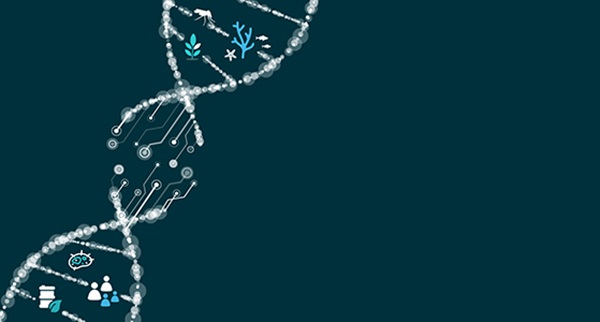
We would like to give a massive thank you to our International Advisory Panel (IAP) who recently reviewed our Program Report.
The IAP includes: Matthew Chang (Chair; National University of Singapore), Pamela Silver (Harvard University), Kristala Prather (MIT), Paul Freemont (Imperial College London), Jim Hasselof (Cambridge University), Fred Gould (North Carolina State University), Sarah Hartley (University of Exeter), John Glass, J. Craig Venter Institute), Jane Calvert (Edinburgh University) and Birger Lindberg Møller (Copenhagen University).
The report was lengthy and the input from the IAP was extremely useful both in reviewing the current progress and our plans for the remainder of this FSP, as well as making suggestions for the next FSP program. The executive summary noted that “overall the Synthetic Biology FSP has met its objectives and in some cases exceeded them” and ranked progress against KPIs overall as strong to benchmark internationally. We are very thankful for the critical commentary and suggestions going forwards, and very grateful to our IAP for their service.
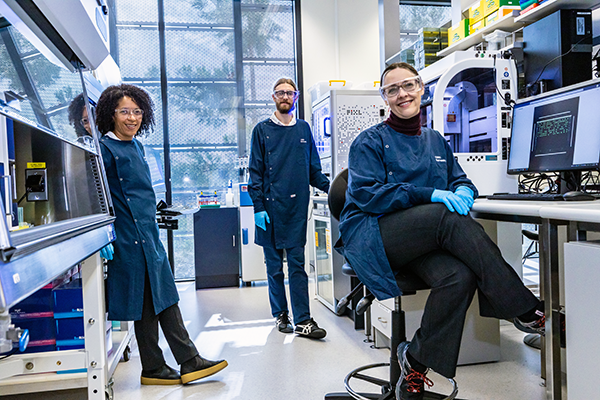
The CSIRO BioFoundry is a state-of-the-art facility providing bioengineering capability to the R&D community.
We’re working with industry and academia who are looking for solutions to rapidly innovate the development of bio-based products.
The CSIRO BioFoundry will be recruiting soon! Two Laboratory Technicians, one full-time and one part-time, to work on SynBio project development and execution. Also, one full-time Data Engineer to work on the data management pipeline between automation hardware, software and LIMS.
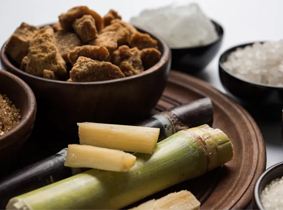 " After="" />
" After="" />
In the face of global changes to prices and consumer demands, sugar industry representatives are looking for new and innovative ways to enable Australia’s sugar industry to thrive sustainably into the future.
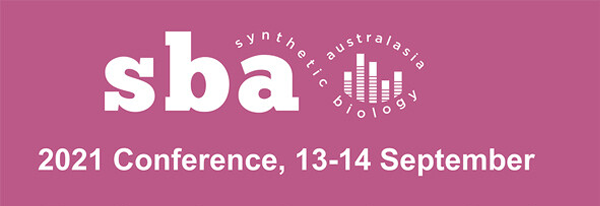
Registrations are now open for the virtual Synthetic Biology Australasia 2021 Conference over 13-14 September.

Registrations are now open for the Cutting-edge Symposium on Integrated Systems Biology, and will close on 20 October 2021. Abstract submissions are also now open and will close on 16 August 2021.
The Symposium will be held at the Brisbane Convention & Exhibition Centre, 25-26 October 2021.
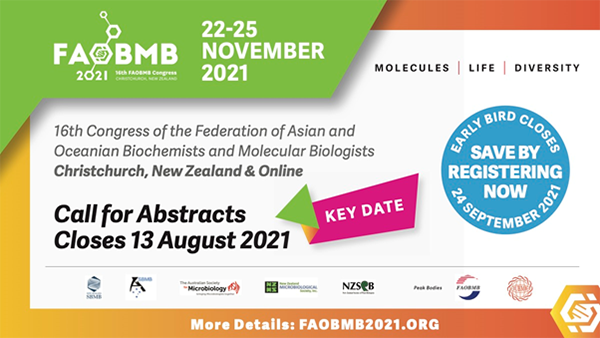
Abstracts are now open for the 6th Congress of the Federation of Asian and Oceanian Biochemists and Molecular Biologists (FAOBMB Congress) and will close on 13 August. Early bird registration is open until 24 September.
The FAOBMB Congress will be held in Christchurch, New Zealand, 22-25 November 2021.
Have you missed out on a SynBio FSP webinar?
Head to our website to catch up on recordings from March, April and May 2021. Topics include CRISPR technology; chicken eggs; glycoengineering; bioremediation and cane toads.
Congratulations to our latest set of SynBio leaders who have recently completed their SynBioFSP Fellowships: Brendan Kidd, Briardo Llorente, Matt Wilding, Michele Fabris, Suvi Honkanen, Tom Williams, Bingyin Peng and Elliott Gerrard. Also a big congratulations to those Fellows who have already finished their Fellowships: Jason Whitfield, Karen Weynberg, Andrew Hao, Nina Pollak. We look forward to working with you in the future!
Please also welcome Sophie Schmidt who is joining our team to provide communication support to the FSP.
Adhikari, K., Bikundo, E., Chacko, X., Chapman, S., Humphries, F., Johnson, H., Keast, E., Lawson, C., Malbon, J., Robinson, D., Rourke, M., Sanderson, J., & Tranter, K. (2021). What Should Farmers’ Rights Look Like? The Possible Substance of a Right. Agronomy, 11(2), 367.
Chan, W. Y., Oakeshott, J. G., Buerger, P., Edwards, O. R., & van Oppen, M. J. H. (2021). Adaptive responses of free-living and symbiotic microalgae to simulated future ocean conditions. Global Change Biology, 27(9), 1737-1754. doi:https://doi.org/10.1111/gcb.15546
Commault, A. S., Kuzhiumparambil, U., Herdean, A., Fabris, M., Jaramillo-Madrid, A. C., Abbriano, R. M., Ralph, P. J., & Pernice, M. (2021). Methyl Jasmonate and Methyl-β-Cyclodextrin Individually Boost Triterpenoid Biosynthesis in Chlamydomonas Reinhardtii UVM4. Pharmaceuticals, 14(2), 125.
Eddleston, M., Clutton, E., Taylor, M., Thompson, A., Worek, F., John, H., Thiermann, H., & Scott, C. (2020). Efficacy of an organophosphorus hydrolase enzyme (OpdA) in human serum and minipig models of organophosphorus insecticide poisoning. Clinical Toxicology, 58(5), 397-405. doi:10.1080/15563650.2019.1655149
Hao, N., Sullivan, A. E., Shearwin, K. E., & Dodd, I. B. (2021). The loopometer: a quantitative in vivo assay for DNA-looping proteins. Nucleic Acids Research, 49(7), e39-e39. doi:10.1093/nar/gkaa1284
Kidd, B. N., Foley, R., Singh, K. B., & Anderson, J. P. (2021). Foliar resistance to Rhizoctonia solani in Arabidopsis is compromised by simultaneous loss of ethylene, jasmonate and PEN2 mediated defense pathways. Scientific Reports, 11(1), 2546. doi:10.1038/s41598-021-81858-5
Matzke, N. J., Lin, A., Stone, M., & Baker, M. A. B. (2021). Flagellar export apparatus and ATP synthetase: Homology evidenced by synteny predating the Last Universal Common Ancestor. BioEssays, 43(7), 2100004. doi:https://doi.org/10.1002/bies.202100004
Mead, O. L., & Gueidan, C. (2021). Testing carbon and nitrogen sources for the in vitro growth of the model lichenized fungus Endocarpon pusillum Hedw. The Lichenologist, 53(3), 257-264. doi:10.1017/S0024282921000153
Nieves, D. J., & Baker, M. A. B. (2021). Pushing the super-resolution limit: recent improvements in microscopy below the diffraction limit. Biochem Soc Trans, 49(1), 431-439. doi:10.1042/bst20200746
Royan, S., Gutmann, B., Colas des Francs-Small, C., Honkanen, S., Schmidberger, J., Soet, A., Sun, Y. K., Vincis Pereira Sanglard, L., Bond, C. S., & Small, I. (2021). A synthetic RNA editing factor edits its target site in chloroplasts and bacteria. Communications Biology, 4(1), 545. doi:10.1038/s42003-021-02062-9